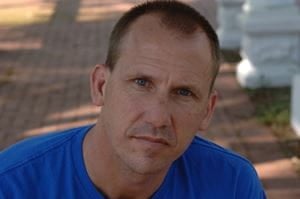
Jim Sonefeld had a problem… and everyone knew it but him. As the drummer for Hootie and the Blowfish, he was able to indulge in the drinking habit that he’d developed in high school. When he rJim Sonefeld had a problem… and everyone knew if but him. As the drummer for Hootie and the Blowfish, he was able to indulge in the drinking habit that he’d developed in high school. When he realized it was a full blown addiction, he had to look beyond himself for help.
Before you were 18, you’d already been exposed to alcohol?
Oh, sure. As soon as I got out of Catholic school in the summer of ’79, I started hanging out with kids from the public school and different kids from the neighborhood. Somebody had some beer. I didn’t know how to say ‘no’ so I drank it and that was the beginning. I was 14 years old, and I took it to excess almost immediately.
How were you able to function in high school already addicted to alcohol?
I surrounded myself with people who were like me. In my case, I also surrounded myself with people who were a little more reckless. It made me feel like, ‘Wait, I’m not doing anything that’s too wrong, because the guy next to me is in more trouble.’ It gave me the is false sensation of ‘I’m okay’. I functioned well. I was an athlete. I played soccer - ended up going off to college at 18 to earn an athletic scholarship. Looking back, I was already drinking alcoholically - sometimes to excess only on the weekends. Even if I didn’t drink for a couple of weeks, when I did drink, it would often come with consequences. The big consequences escaped me - I didn’t have to go to jail. I stayed under the radar just enough to feel like I was not in that much trouble.
When did Hootie and the Blowfish become part of your life?
I was almost 25 years old. I had college just behind me. Music had reentered my heart. I was a musician as a kid, playing drums. It was something I wanted to take to the next level. So, we did what most bands with desire do, which was to buy a van and go see who wanted to hear our music.
Isn’t drinking just part of the lifestyle of being in a band?
Sure, for a lot of bands. It’s a great social lubricant, a means of fitting in if you are a little shy. It’s a common denominator in our society - when you’re meeting new people or celebrating you pop champagne or have a drink. It works okay for people who can control it. My problem was I didn’t have the capacity to be honest with myself and say, “Wow, I don’t ever seem to be able to say no.” I wanted to start early and I wanted to finish late. I wanted to take it to the next level more often than anyone.
When did you realize this was a problem?
When I tried to quit and I couldn’t. I was getting intervened about my drinking by friends and family in a loving manner. They were saying, “Hey, we’re concerned. We love you. We’re worried about who you’re hanging out with.” So, I was trying to control it. I said, “Oh, I won’t drink this weekend” or “During Lent I won’t drink liquor on the weekdays.” The biggest lie ever was saying and believing that, “I can control it.” Also, I had a family started. I got away with a lot of wildness out on the road, but when you bring that home and you have two little kids, you stick out like a sore thumb.
When did your faith in Christ come to fruition?
After I admitted alcohol had conquered me and I couldn’t get well alone, I asked a group to help me. It was the first time in my life to say that ‘I needed help and guidance’. That was a big step for a 40-year-old man with a college degree and big ego. I always believed my self-will could carry me through any problems I faced. Once I started taking suggestions from the group and realized I needed to point my life towards God, things began to change for me. I had been ‘playing God’ instead of ‘seeking God’. I had been running from my sins and shortcomings instead of facing them and taking responsibility. A friend gave me a ‘recovery bible’ and I was able to see how my relationship with Jesus Christ and his teachings would be a big part of my recovery.
Some people don’t stay in the program or leave and lose the spiritual aspect of it. How did you maintain your faith?
I accepted that recovery, and therefore my spirituality, had to be an ongoing process that took time to understand and develop. I accepted this fact: the best chance of staying sober and growing spiritually was to do it one day at a time, fellowshipping with a group, and with God.

